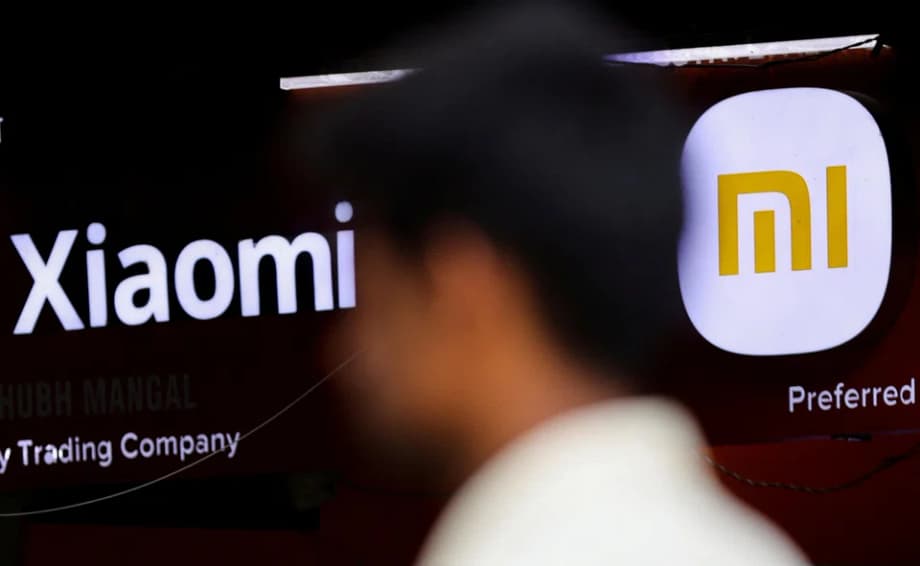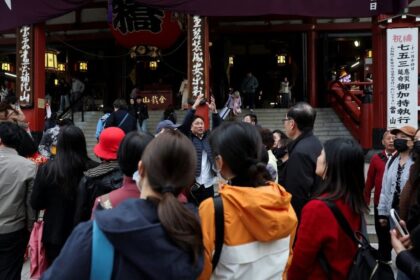A death that sparked a debate
In late summer, a 34-year-old retail project manager named Wang Peizhi collapsed while shopping with his young son. He died of a heart attack days later. In the months before his collapse, Wang had been working long hours to prepare Xiaomi’s stores for the launch of its first electric car. His job was to help convert shops designed for smartphones into showrooms that could display and service full sized sedans and sport utility vehicles. The transformation was central to Xiaomi’s strategy. It wanted customers to experience cars in the familiar retail network that once sold handsets and gadgets.
The workload grew as the company accelerated toward the SU7 sedan launch in 2024. The retail team that handled store conversions had been cut during the pandemic, leaving a small group to cover a national rollout. Internal records reviewed by people familiar with the work show that Wang worked on at least 267 stores in eight months. Colleagues say he often took on the most complex projects while juggling routine maintenance across a large footprint. Travel, late nights, and constant problem solving became routine.
Local authorities later ruled that his death was not related to his job. His widow disagrees, pointing to months of extreme hours and stress. She says she rarely saw him during that period, and that he often returned home after 9 p.m., phone still buzzing with work messages. As she put it,
‘The work took all his time when he was needed as a father, as a husband.’
Xiaomi offered condolences and said it supported the family. The company has denied wrongdoing. Inside the firm, Wang’s death did not lead to a company wide change to work hours, according to people who worked with him. His story has become a touchpoint in a broader debate over long days and high pressure inside China’s most ambitious tech companies.
How a smartphone giant pivoted into cars
In 2021, Xiaomi announced it would build cars. The move was bold. Few consumer tech brands have managed a clean leap into the capital intensive world of automotive manufacturing. Xiaomi’s co founder, Lei Jun, called the project his last entrepreneurial push. The company invested heavily, pouring funds into suppliers, software, and its own factory. By early 2024, the SU7 sedan was on the road, marketed as part of a larger vision that connects phone, home, and car into one digital ecosystem.
Early reception was strong. Deliveries climbed into the hundreds of thousands within the first year. Competition in China, however, is fierce. Market leader BYD lowered prices in late spring, a signal that the price war in electric vehicles had reignited. Xiaomi pressed ahead with a second model, the YU7 sport utility vehicle, and said the car unit could reach profitability in the second half of 2025 even after reporting a loss early in the year. The company framed the car push as a long game powered by software strengths and an integrated consumer brand.
A launch measured in months, not years
Speed has been a defining feature of Xiaomi’s car strategy. The company invested more than a billion dollars across its supply chain between 2021 and 2024, and brought talent from established automakers to shorten the learning curve. Internally, it set up an Architecture Department that reports directly to Lei Jun to drive decisions on next generation vehicle platforms. Like many carmakers, Xiaomi also benchmarked rival models through teardowns. Executives described the practice as a way to learn quickly from the best engineering on the market, then apply Xiaomi’s own software and electronics strengths.
Why the hours got longer
Wang’s death drew attention because it echoed stories that have stirred public debate for years. Long days remain common in Chinese tech firms. The pace is driven by a crowded market at home, rivalry with American players in artificial intelligence and chips, and a sense that national priorities rest on winning in sectors like EVs, e commerce, and advanced manufacturing. In many firms, workers describe a culture where 11 or more hours a day is routine. A 2024 survey by job platform Maimai reported that Xiaomi employees averaged about 11.5 hours a day. Broader statistics tell a similar story. China’s National Bureau of Statistics put the average workweek at 49 hours in 2024, up from 47.9 hours two years earlier.
Official concern, limited change
Authorities have signaled concern. In 2025, the central government issued an action plan to curb what it called unhealthy work culture and asked provinces to do more to prevent excessive hours. Prior cases drew attention to the risks. In 2021, an investigation followed the death of a young employee at a major e commerce firm. In 2022, a content moderator at a leading video platform died of a brain hemorrhage. Companies denied wrongdoing, but each case reignited debate. Despite periodic crackdowns, long days persist. Engineers in some firms skipped vacations to meet new deadlines after breakthroughs in artificial intelligence reshaped competitive timelines.
Mary Gallagher, a professor at the University of Notre Dame who studies labor and law in China, describes the pressure inside high growth export sectors, including EVs, as intense and politically salient.
‘These industries that are doing so well, including on export markets, are so important to the confidence that Xi Jinping wants to see in the economy. There is enormous pressure in those places.’
Work and life balance has become a national topic on social media. Posts that are difficult to verify circulate about extreme schedules and burnout. The conversation boils down to a tension between national ambition, corporate targets, and the limits of human endurance.
Inside the race to retrofit hundreds of stores
Converting smartphone shops into car showrooms sounds straightforward, but the work is complex. Many locations needed structural changes to support vehicle weight, installation of charging and ventilation equipment, redesigned entrances for cars, and new electrical and fire safety upgrades. Teams also had to rebrand spaces, retrain staff, and coordinate with landlords and local inspectors. The rapid schedule meant crews often worked through nights to finish ahead of inspection windows and launch events.
During the pandemic, the retail team was reduced, leaving a small group to handle a rollout across China. As the SU7 launch neared, Wang’s responsibilities expanded. He managed major conversions and kept routine maintenance running on existing stores. Internal notes and photos show steady travel and long routes across multiple cities as deadlines converged. Colleagues praised his output and initiative, but the volume did not ease.
In one of his last messages, written to a contractor while he was ill, Wang pleaded for help to meet a deadline.
‘What I signed up for was a life or death commitment. Do not leave me hanging.’
Days later he collapsed. He died on Aug 25, at age 34. His widow, left with significant debts, has pressed for recognition of what happened to their family. She says the company offered a hardship payment that did not arrive and that some of his stock options were rescinded. Xiaomi has said it expressed condolences and provided support, and it has denied wrongdoing. The case has come to frame a larger argument about how far a company can push during a historic expansion without crossing a line.
What Xiaomi says and what the law requires
Xiaomi has said that Wang was a valued employee and that it supported his family, while denying wrongdoing. The company did not announce a new policy on daily hours after his death. Chinese media reported in April that some teams were expected to work at least 11.5 hours a day and that staff who clocked fewer than eight were asked to explain the short day. The company did not respond to questions in those reports.
Chinese labor law caps standard working time at 44 hours per week, though employers can negotiate with unions and employees to extend that. Enforcement varies and often relies on local regulators. Recognizing a death as a work injury requires proof that it occurred at or was directly caused by work. Families rarely secure that designation when an event takes place off site and days after a collapse.
Public health guidance adds to the concern. The World Health Organization defines overwork as more than 55 hours per week and links it to higher risks of heart disease and stroke. The definition does not by itself prove causation in any individual case, but it frames a risk threshold that many employees in fast moving sectors say they regularly exceed.
Market forces raising the stakes
The business backdrop helps explain the urgency. China is the largest electric car market in the world. Price cuts by BYD in late May revived a bruising competition that had already squeezed margins across the industry. A state newspaper warned that extreme price wars could threaten supply chain security and damage the reputation of Chinese goods if quality slips. Companies that launch a new model face a short window to capture attention before the next wave arrives.
Xiaomi reported strong demand for its first car in 2024 and 2025, and it is pursuing the premium segment where software, infotainment, and driver assistance features influence buying decisions. The company aims to deliver hundreds of thousands of vehicles this year and has introduced a second model to broaden its reach. Profitability is still in view rather than in hand. The car unit posted a loss of about 500 million yuan in the first quarter of 2025, an improvement from the prior quarter. Lei Jun has said the business could turn profitable in the second half.
Safety and quality sit under a spotlight. Early in 2025, an SU7 crash in Anhui province killed three people, and assisted driving was engaged according to reports. The case intensified attention on software updates, testing protocols, and driver education. Xiaomi has also leaned into public demonstrations of technology, including a video in which Lei Jun dropped watermelons coated in material used on the vehicle battery pack. The performance was a bid to showcase durability, and it reflected the hands on style that has made Lei a central figure in the brand story.
Global expansion adds new layers. Xiaomi is preparing to bring cars to Europe by 2027 and has opened an electric vehicle research and design hub in Munich. Teams there focus on driver assistance systems, vehicle dynamics, and user experience to meet strict European regulations. The company has also pledged to invest 50 billion yuan over a decade in its own chip development, an effort that could be affected by potential limits on access to chip design software from the United States. Each of these moves raises technical and regulatory demands, and with them, pressure on teams.
Can high performance coexist with humane schedules
Automotive launches are marathons run at the speed of a sprint. Companies that move from electronics to cars face new constraints, including crash testing, multi year supplier contracts, and tight regulatory calendars. The quickest route is not always the safest route for people. Firms that sustain performance over many cycles tend to spread work across larger teams, set capacity based timelines, rotate crews on travel heavy tasks, and enforce rest periods around milestones. Transparent overtime pay, predictable off days, and mental health support reduce turnover and keep know how inside the company. Those measures are not altruism. Burnout weakens quality and raises warranty costs.
Xiaomi’s decision to create an Architecture Department that reports to the chief executive may cut decision time and rework by centralizing choices. That can help speed hardware and software convergence across models. It can also concentrate deadlines and pressure. Benchmarking rivals through tear downs can shave months from development, but it still leaves heavy lifting on validation and safety. As Xiaomi courts premium buyers and prepares for Europe, the company will need error free field performance and support networks that match its marketing. That cannot be built overnight.
Wang Peizhi’s story captures the human stakes behind a headline grabbing expansion. A fast climb made Xiaomi a leading name in Chinese electric cars. The same velocity created conditions where a small team ran through walls to open showrooms at an extraordinary pace. The debate now is less about who wins the next quarter and more about how any company in this race can reach scale without losing people along the way.
What to Know
- A 34-year-old Xiaomi retail project manager who helped convert phone shops into car showrooms died of a heart attack after months of long days. Local authorities ruled the death not work related.
- His widow says extreme hours contributed and that she rarely saw him in his final months. She has sought formal recognition of his contribution.
- Internal records indicate he worked on at least 267 stores in eight months as Xiaomi rushed the SU7 launch.
- Xiaomi expressed condolences and said it supported the family, while denying wrongdoing. No company wide change to work hours was announced.
- A 2024 Maimai survey reported Xiaomi employees averaged about 11.5 hours a day. National data put the average workweek in China at 49 hours in 2024.
- Beijing issued a 2025 plan to curb unhealthy work culture, yet long days persist in tech as firms compete in EVs, AI, and e commerce.
- Xiaomi launched the SU7 in 2024 and the YU7 in 2025. The car unit reported losses early in 2025, and leadership expects profit in the second half of the year.
- Price cuts by BYD and a broader EV price war in China have increased pressure to deliver features and scale quickly.
- Xiaomi plans a European entry by 2027 and opened an EV research and design hub in Munich to meet regional standards.
- According to his widow, a hardship payment discussed after Wang’s death did not arrive and some stock options were rescinded. The company maintains it offered support and denies wrongdoing.












